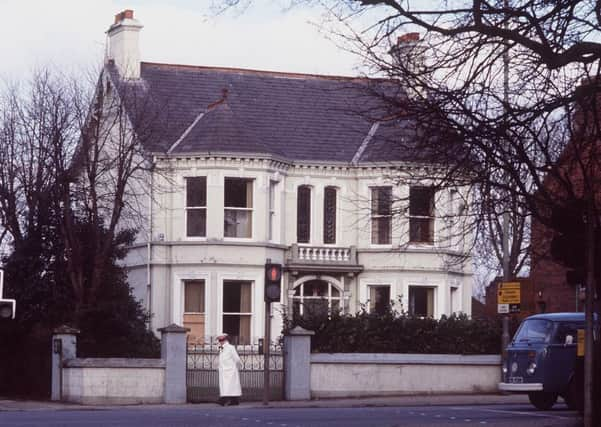No evidence found of paedophile ring at Kincora


No credible evidence was found of complicity in exploitation of sex abuse at Kincora or that prominent Establishment individuals were involved.
Instead, failings by the health authorities and Royal Ulster Constabulary (RUC) were blamed after dozens of residents complained of being targeted.
Three men were convicted.
Advertisement
Hide AdAdvertisement
Hide AdHowever, the inquiry said: “It was not a homosexual brothel, nor was it used by any of the security agencies as a honey pot to entrap, blackmail or otherwise exploit homosexuals.”
Sir Anthony added: “It is now time to finally lay these unfounded myths to rest.”
He found evidence of numerous missed opportunities to detect abuse and take action.
But the inquiry said there was no credible evidence that individuals including Sir Maurice Oldfield, a former head of the secret intelligence services, and a number of Northern Ireland Office civil servants used Kincora for sexual purposes.
Advertisement
Hide AdAdvertisement
Hide AdWilliam McGrath, Raymond Semple and Joseph Mains were senior care staff at Kincora. They were jailed in 1981 for abusing 11 boys.
The inquiry said: “Those residents of Kincora who were sexually abused by Mains, Semple and McGrath were let down by those three individuals who abused their positions of authority and committed numerous acts of sexual abuse of the gravest kind against teenage children in their care while they were living in this hostel.”
The inquiry said McGrath, who led a shadowy loyalist organisation called Tara, was never an agent of the state.
It added: “William McGrath was a sexual pervert who had political and religious views of an extreme and bizarre type, who managed to trick gullible young men who were interested in political matters into regarding him as an important political figure.
Advertisement
Hide AdAdvertisement
Hide Ad“William McGrath was never more than a minor player on the wider political stage who managed to create a spurious air of self-importance through Tara at a time of great political instability, communal violence and terrorist activity.”
The inquiry said Tara was never of more than occasional interest to the security services.
MI5 had received a report that McGrath had been accused of assaulting small boys 18 months before he was confirmed as the leader of Tara.
Given the time lag, the inquiry did not criticise MI5 officers for failing to appreciate the significance of the information.
Advertisement
Hide AdAdvertisement
Hide AdHowever, it did raise concerns after a police reviewer was unable to complete his investigation because he wanted to conduct an interview about Kincora with a person liaising between the secret services and the army.
Claims made by Colin Wallace, a former British Army information official, were disregarded.
“We do not regard Mr Wallace as truthful in his accounts of what he knew about sexual abuse in Kincora, or what he did with that knowledge between 1972 and 1974,” said the inquiry.
A number of former residents of Kincora raised questions on whether the UK government did provide full disclosure to the inquiry.
Advertisement
Hide AdAdvertisement
Hide AdA statement issued by their lawyer said: “There remain doubts whether the truth about Kincora and the role of state agents has been effectively investigated by the HIA and whether the HIA could effectively investigate.
“Our clients, the Kincora victims, will continue to press for truth, justice and accountability after today’s report.”